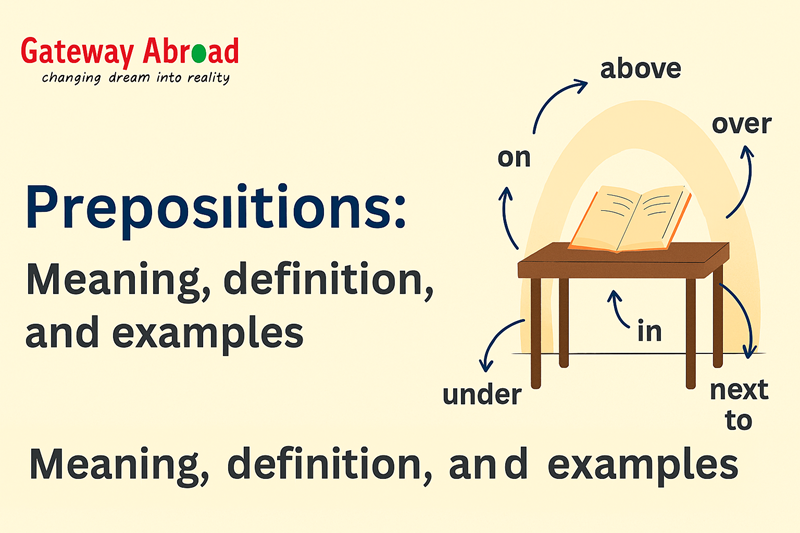Prepositions: Meaning, definitions, and examples
📅Nov 12, 2025
Spoken English
View - 11
Read Time - 2 min
Author • Admin
🔍Search
Latest Articles
Have a question about Articles?
Want some help figuring out what kind of information you need?
Help and Support

Leave a Comment
Your email address will not be published.